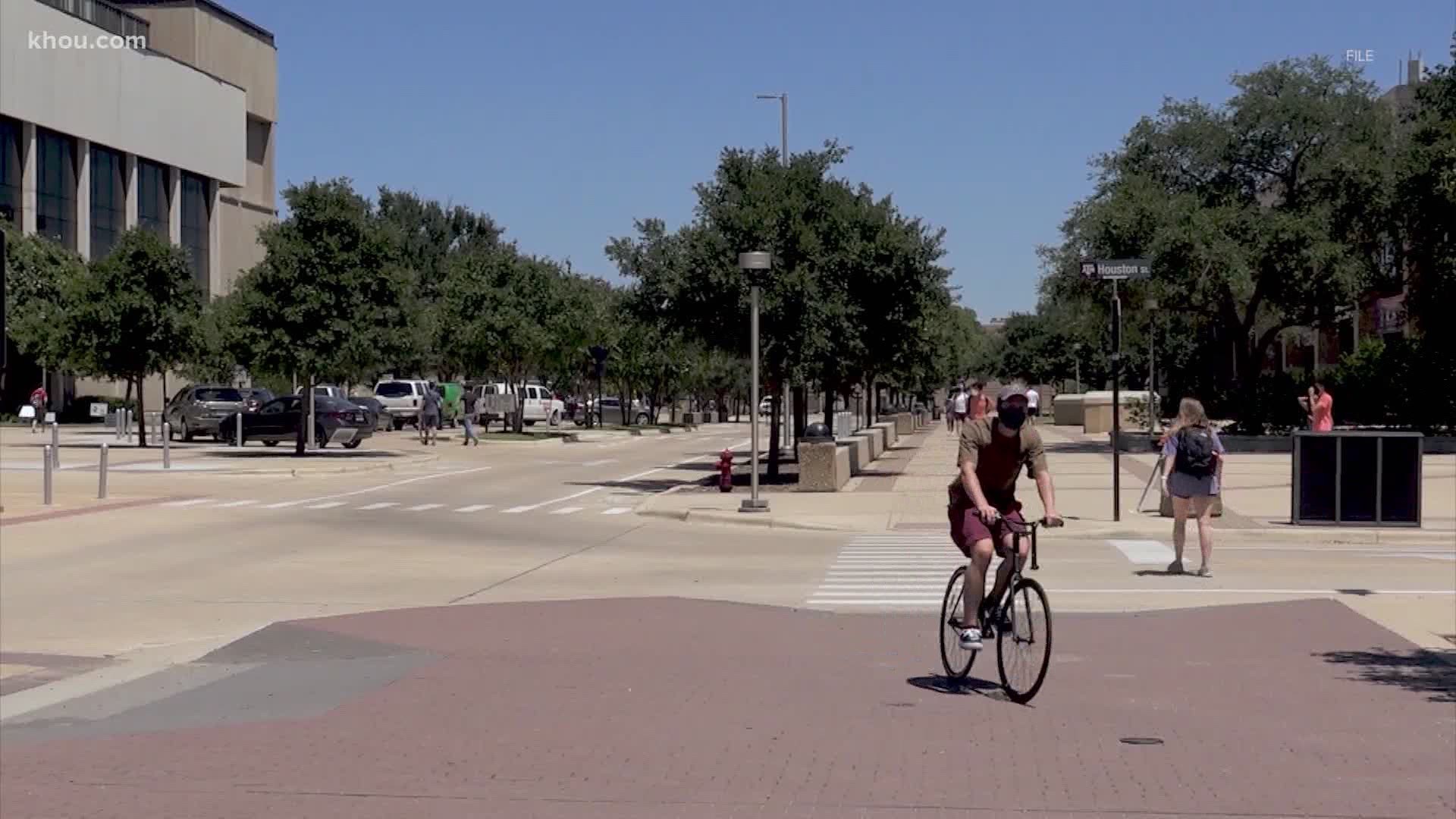AUSTIN, Texas — Many college students in Texas will have more time for the holidays, but it comes at a cost: Spring break is canceled or reduced for some students.
Texas Tech University will reduce from a full week to one day. The university will also delay the start of the spring semester to Jan. 20.
Baylor University works closely with the Centers for Disease and Prevention. Baylor will have no spring break.
“It definitely is challenging with burnout, continuing for so long without any sort of break,“ Josh Martin, senior at Baylor, said.
Martin supports Baylor’s decision
“I think it was a great choice and a great decision and a hard one to make. But, yeah, it definitely is challenging with burnout,” Martin said.
Texas A&M University will get a one-day spring break.
“With the pandemic fatigue and this holiday, people are likely to be a little more lax about following public health guidance,” Dr. Angela Clendenin, Texas A&M Instructional Assistant Professor in Epidemiology and Biostatistics, said.
A&M will delay it’s spring semester to Jan. 19.
The University of Texas at Austin will not make a change to spring break. It is scheduled as prior years.
The university asks students to get tested as frequently as once every two weeks, but it’s not mandatory. UT also requires all students, faculty and staff to take an online health safety training.
The Centers for Disease Control and Prevention issued guidance for institutes of higher education.
Experts within the agency pointed its partners to a COVID-19 Dashboard Rating. The rating looks at how higher education institutions relay COVID-19 information to the public. The factors include the ease to read the information, how often the information is updated and the kind of data presented. The institutions listed with Texas have a "C" or higher.
On a partner call, experts with the CDC suggested schools form agreements with local health departments.
Texas A&M does. The university helps the Brazos County Health Authority with contact tracing and response planning.
“We signed a Memorandum of Understanding to be able to provide surge capacity to our local health authority. That enables us to be able to take care of the cases and contacts on our campus much faster than it would take for the providers to send the test to the health department and have the health department investigate it,” Clendenin said.
This recent White House report to Texas shows this recommendation, “Ensure all universities returning in the winter move to mandatory weekly testing of all on and off campus students. Planning for that must begin now.”
“We're going to be developing a testing plan to be able to improve that type of informative surveillance moving through the spring semester because, ultimately, that's the key to being responsive,” Clendenin said.
The colleges and universities still have planning to do for future semesters.
Texas A&M limited its study abroad over the summer. Baylor canceled study abroad altogether.
“Mid spring or the beginning of spring, we'll start talking about the summer. We'll have a better idea of where things are projected to go globally for the summer probably in about two months to two-and-a-half months. We can start coming up with different scenarios and contingencies for our summer education programs, whether they are domestic or abroad. Then, probably April or May will once again be planning for our fall semester and what that's going to look like,” Clendenin said.
PEOPLE ARE ALSO READING:

